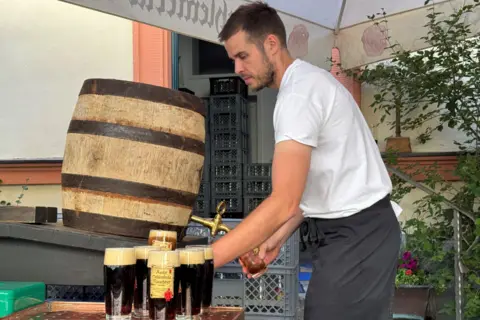Germans are drinking less and less beer, but non-alcoholic varieties are more popular than ever.
Germany's Destatis federal statistics office has reported that non-alcoholic beer sales have more than doubled in recent years—up 109% since 2013—while overall beer sales have plummeted to their lowest level in over three decades.
For the first time, beer sales have fallen below 4 billion litres in a half-year period. In the first half of 2025 alone, German beer sales dropped by 6.3%—or 262 million litres—compared to the same timeframe the previous year.
The Erdinger brewery, established in the 1880s near Munich, has noted this shift in consumer behavior, with CEO Stefan Kreisz stating that around a quarter of their production is now non-alcoholic beer. We need to find a way to make beer, even if it's non-alcoholic, attractive for young people, he said, emphasizing an understanding of their social habits.
At local bars like Café Kosmos in Munich, bartender Louis von Tucher has observed that patrons are becoming more health-conscious, incorporating non-alcoholic beverages into their drinking routines, a stark contrast to attitudes in past decades.
Nonetheless, full-strength beer remains significant in the culture; at the Sandkerwa folk festival in Bamberg, traditional beer consumption still flourishes, demonstrating that while drinking habits may be changing, the legacy of German beer remains strong. Young patrons like Magdalena acknowledge a shift towards healthier drinking but celebrate the centrality of beer in their community's daily life.















